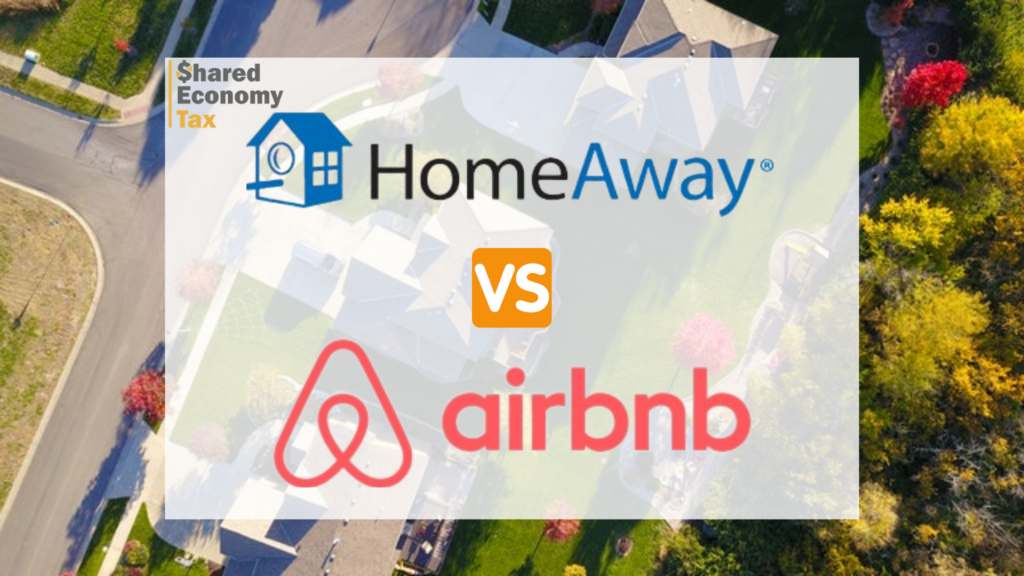HomeAway vs Airbnb, which is better? The timeshare industry has exploded over the last several years. Homeshare sites like HomeAway and Airbnb have gained in popularity. Travelers appreciate having flexible housing options when they travel. There are more short-term rental apps than ever before, so hosts have lots of options. So which platform is best for hosts?
HomeAway vs Airbnb
So, HomeAway vs Airbnb, which is better? Both home-sharing platforms offer similar income-earning opportunities to hosts. Both offer a variety of properties, from apartments, condos, single-family residences, cabins, and even boats. The main distinction between the two is that HomeAway offers private rentals for their guests, meaning the guest rents the entire space. While Airbnb has this option as well, guests also have the ability to rent owner-occupied spaces and also spaces occupied by other guests. In addition, Airbnb also offers “experiences” for guests, where they can experience local attractions and activities.
Getting Started
Getting started with either HomeAway or Airbnb is pretty straightforward. Hosts can create an account and manage their listings from their dashboard, where they can provide a description, pictures, control rate, and control other aspects of their listing. On HomeAway, it typically takes 48 hours for a listing to go live, while Airbnb takes anywhere from 6 to 24 hrs. Once properties are live on both sites they are visible for potential guests to book.
Hosting on either platform requires certain requirements to be met. For example, listings for both platforms must include:
- Location Details. This section includes address and map location
- Property Headline and Description. Make this engaging and detailed. Also, your description should realistically depict your property.
- Pictures. Pictures are usually the first things guest look at. Take pictures that cast your property in an appealing light.
- Contact Information. You must include signup with an email and phone number
- Rules and Rate. Set your nightly rate, fees, and cancelation policy.
In addition, Airbnb has different guidelines:
- Providing basic amenities like toilet paper, soap, sheets, towels, and pillows.
- Being responsive to guest inquiries.
- Actively accepting reservations, they want to make sure you are active on the platform.
- Avoiding cancelations
- Maintaining good ratings and reviews
HomeAway doesn’t specifically ask hosts to abide by these requirements, but following them can’t hurt.
User Experience
Both HomeAway and Airbnb have easy to use interfaces for guests. Guests can easily browse listings and book reservations from their apps. Both platforms have good customer service records. HomeAway’s ‘Book With Confidence’ guarantee comprehensive payment protection for guests. The platform also offers 24/7 customer service and rebooking assistance for last-minute cancellations.
However, Airbnb offers more variety. HomeAway only offers private listings, but Airbnb find communal rentals and rooms. These options tend to be more affordable. In addition, Airbnb also offers experiences, so guests can take advantage of local attractions and other experiences with their hosts.
HomeAway and Airbnb both charge guests a usage fee. HomeAway charges 10% to 11% per booking. While Airbnb charges 10% to 13% per booking.
Taxes & Fees
Each platform has its own set of service fees, in addition to taxes. HomeAway charges a flat $499 per year plus tax and credit card processing fee, while Airbnb charges a 3% to 5% booking fee with each transaction. This does not include Airbnbn’s applied service fee or taxes. Right off the bat, HomeAway has a larger upfront cost, however, if you have a lot of sales volume, you only pay $499 for the year, so it may end up being a better deal, in the long run, it just depends on your business.
Taxes are another consideration as a host on either platform, as each city, locality, and state have different requirements. For both HomeAway and Airbnb, they may have agreements with local governments to collect lodging and sales taxes, however, it is a good idea to do your research before you get started. In some areas, you must collect and pay taxes yourself. It’s better to be safe than sorry, in this instance it is a good idea to seek the counsel of a tax advisor or specializes in state and local taxes.
Getting Paid
The payout time varies for HomeAway and Airbnb. HomeAway typically pays out 30 days after the guest payment, while Airbnb will release funds within 24 hours of the guest checking in. How quickly the funds are available to you depends on your bank’s policies. Both platforms subtract processing fees and taxes from your earnings. In addition, home-sharing platforms do not withhold income taxes from your pay. You should set aside 20% to 30% of your earnings for tax payments. This should be part of your tax planning strategy.
Airbnb vs Homeaway – Which is Better?
It depends on your business. If you want to rent a vacant home in a desirable area, you should consider HomeAway. The annual subscription cost may be lower. Lower guest fees could attract more guests. However, if you want to rent a spare room you should probably choose Airbnb.
You should also consider longevity. HomeAway has actually been around longer than Airbnb. HomeAway also recently acquired another home-sharing platform called VBRO. However, with over 150 million users, Airbnb is more popular. More users mean more visibility.
You should also consider your desired clientele. HomeAway is more family-oriented, but Airbnb appeals to a wider range of guests. The best one depends on the property you’re renting and your business.
Get Help With Your Rental Taxes
Taxes are complicated, and self-employed taxes are even more complicated. If you are a home share host, the IRS classifies you as self-employed. This creates a whole other level of tax complications. For example, you might have to make estimated tax payments and pay self-employment taxes. In addition, there may be state and local taxes that you have to pay that you weren’t aware of, especially if you are conducting business out of state.
If taxes are giving you a headache, you should talk to a professional. Ideally, you should choose a tax advisor who specializes in the Sharing Economy businesses. Luckily, the Shared Economy Tax pros specialize in taxes for homeshare hosts. Click here to Get started today with a complimentary one-on-one strategy session. For more Sharing Economy tax tips, subscribe to our newsletter below.

